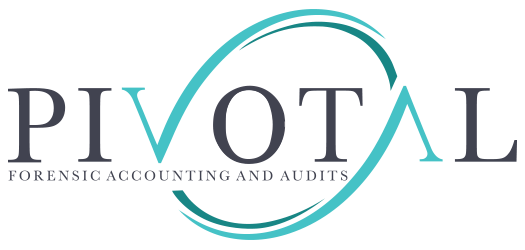Trade or Business? Hobby or Investment?
Trade or Business? Hobby or Investment?
In the area of taxation, one of the critical determinations that individuals and agencies must make is whether their hobby fall beneath the category of a trade or enterprise, an interest, or an investment. This type is more complex and important for tax functions. However, it additionally impacts numerous prison and monetary concerns. In this article, we will delve into the differences among these classes, exploring the standards that differentiate them and the results they carry.
Trade or Business
The Internal Revenue Service (IRS) defines an alternate or enterprise as a pastime performed with the primary rationale of creating a profit. This definition incorporates a wide range of activities, starting from traditional brick-and-mortar enterprises to online ventures and freelance paintings. The key component that distinguishes a trade or commercial enterprise from other sports is the profit purpose. If a man or woman or entity engages in a hobby with the genuine goal of turning a profit, it’s considered an alternative or business.
Tax Implications of a Trade or Business
Deductibility of Expenses
Businesses can deduct ordinary and vital fees incurred throughout their operations. This consists of charges along with the lease, utilities, wages, and elements. The capacity to deduct these expenses is a benefit for organizations, as it allows them to reduce their taxable profits.
Business Structure
The structure of a business, whether it is a sole proprietorship, partnership, corporation, or every other shape, has implications for taxation. Each structure comes with its very own set of rules concerning tax, liability, and regulatory requirements.
Tax Credits
Certain businesses may be eligible for tax credits, providing extra incentives. These credits are designed to encourage specific behaviors, along with hiring employees from certain demographic companies or investing in renewable electricity.
Hobby
Unlike a trade or enterprise, a hobby is characterized by an activity that is pursued for personal delight or amusement in preference to the primary aim of creating earnings. Hobbies can range from arts and crafts to leisure activities like gardening or amassing. The essential detail distinguishing an interest from an exchange or commercial enterprise is the absence of an income purpose.
Tax Implications of a Hobby
Limitation of Deductions
Unlike corporations, hobbyists are subject to obstacles at the deductions they are able to declare. While they can nevertheless deduct certain costs related to their interest, those deductions are normally limited to the income generated from the interest itself.
Income Reporting
Hobby earnings continue to be considered taxable. However, reporting necessities may additionally range from the ones for groups. Hobbyists report their income on Schedule 1 of Form 1040, and they can simply deduct expenses up to the quantity of earnings generated with the aid of the interest.
Loss Limitations
Hobbyists cannot use losses from their interests to offset different incomes. In assessment, groups can use commercial enterprise losses to offset profits from various resources.
Deduction Allowances
The allowance of deductions is a critical side that pivots on an activity’s status as an industrial venture or entertainment pursuit. Sec. 162(a) lets in deductions for “regular and vital charges paid or incurred at some point of the taxable year in sporting on any commercial project or exchange.” If a hobby falls short of meeting the criteria of a business assignment, Sec. 162 does not observe disallowing deductions directly in opposition to income derived from that hobby. Instead, Sec. 183, addressing leisure pursuits, may come into play, with a focus on earnings motives.
Sec. 183(d) establishes a presumption that a hobby with extra sales than deductions in at least 3 out of five consecutive years is engaged in for income. However, the IRS may project this presumption, scrutinizing elements along with the player’s expertise, effort invested, success in similar activities, monetary records, and aspects of personal pleasure. If an income reason is deemed absent, Sec. 183 imposes stricter deduction guidelines, proscribes deductions to gross earnings, and subjects them to the regulations of Sec. Sixty-seven (b).
Financial Investments, Sec. 179 Expensing, and the Tax Landscape
Several important deductions are tethered to a hobby’s classification as a commercial undertaking, entertainment pursuit, or economic funding, inclusive of Sec. 179 expenses and the QBI deduction under Sec. 199A. Sec. 179(b)(three)(A) confines the deduction to the taxable earnings derived from the lively behavior of any industrial project. Similarly, Sec. 199A(b)(1)(A) anchors the QBI deduction on qualified industrial or trade activities.
Consequently, a hobby has to qualify as a commercial venture to acquire the blessings of those deductions.
On a superb observation, if an interest falls short of meeting the definition of a business assignment, it eludes self-employment tax. Sec. 1402(a) specifies that net profits from self-employment follow totally to income derived from an industrial assignment. Therefore, an activity deemed now not to be a commercial venture may be fine in circumventing self-employment tax, specifically for sports with minimum prices and lacking an income motive.
Journey through Filing and Information
The category of an activity as a business undertaking considerably impacts filing necessities. Partnerships, as an example, are delineated by way of their involvement in a commercial project, moving their necessity to record Form 1065. Joint ventures must meet the criteria of an industrial mission to be able to file this form, allowing contributors to document their percentage of income and costs otherwise.
Similarly, facts-reporting necessities beneath Regs. Sec. 1.6041-1 and the instructions for Form 1099-MISC and Form 1099-NEC are intertwined with accomplishing a commercial venture. This implies that activities deemed spare time activities or monetary investments might not trigger these filing responsibilities.
Consequences of an Unfolding Narrative
The repercussions of an interest falling short of constituting a business project are great. The absence of a profit purpose or regularity and continuity inside the interest can cause damaging tax implications, proscribing deductions, and impacting the software of self-employment tax, QBI deduction, and Sec. 179 expense. Filing and records-reporting necessities additionally diverge for sports classified as leisure pursuits or monetary investments.
In Conclusion
In navigating the difficult panorama of figuring out whether a revenue-producing interest is a commercial venture, enjoyment pursuit, or monetary funding, considerate consideration of various factors is vital. While the default assumption frequently leans toward the favorability of industrial task reputation, there are instances where the absence of such a class may be nice. Participants must meticulously weigh all elements, encompassing administrative and qualifying elements, to make informed selections regarding the tax implications and submitting necessities in their activities.


